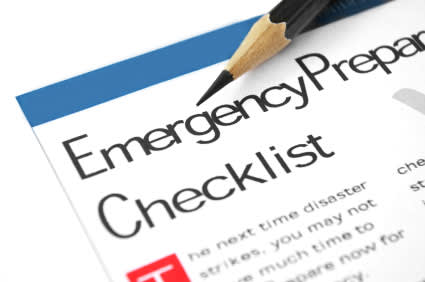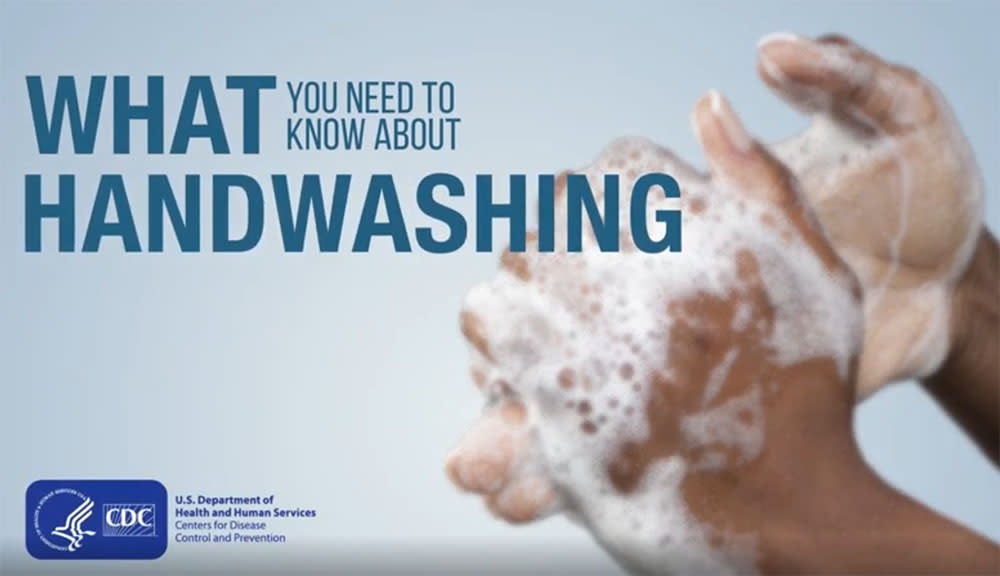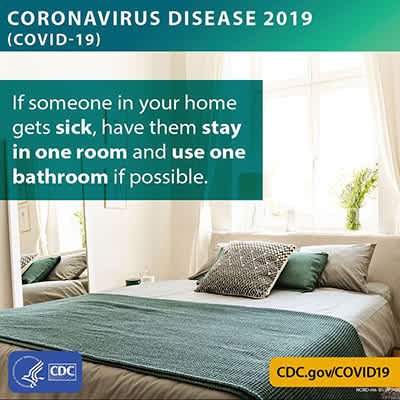Everyone should have a household plan for Coronavirus COVID-19, to protect yourself, and your family. Talk to your family, relatives, neighbors, and friends about what to do if there is a COVID-19 outbreak in your community.
- Plan ways to care for those who might be at greater risk.
- Create a list of local health care services and resources.
- Create an emergency contact list. Emergency contacts may include family, friends, neighbors, health care providers, teachers, employers, and your local county or Illinois health department.
Coronavirus Preventive Actions
Remind everyone in your household to:
- Avoid close contact with people who are sick.
- Stay home when you are sick.
- Cover your cough and sneeze with a tissue.
- Limit close contact with others as much as possible (about 6 feet).
- Frequently clean surfaces and objects daily (tables, countertops, light switches, doorknobs, TV remote, computer mouse and keyboard, cabinet handles, toilet handle, and your cell phone).
- Wash your hands often with soap and water for at least 20 seconds, especially after going to the bathroom; before eating; and after blowing your nose, coughing, or sneezing. If soap and water are not readily available, use a hand sanitizer that contains at least 60% alcohol.
COVID-19 Outbreak in Your Community
- Stay home when you are sick with COVID-19 symptoms, which may include fever, cough, and difficulty breathing.
- Keep away from others who are sick.
- Stay informed. Get up-to-date information about COVID-19 from your health officials.
- Discourage children from gathering in public places while school is dismissed.
- Encourage social distancing to flatten the curve.
- Stay in touch with family and friends with chronic medical conditions.
- Talk with your children about the outbreak to reassure them that they are safe.
- Continue practicing everyday preventive actions.
- Cover coughs and sneezes with a tissue
- Wash your hands often with soap and water for at least 20 seconds.
- Clean frequently touched surfaces and objects.
Why is Social Distancing Important?
Social distancing helps slow down the spread or flatten the curve of the disease allowing the health care system to care for patients. Social distancing is increasing the physical space between people to avoid spreading illness. Staying at least six feet away from other people lessens your chances of catching COVID-19.
Examples of social distancing include:
- Visiting family and friends by phone, FaceTime or Skype, instead of in-person — especially the elderly.
- Working from home
- Canceling or postponing meetings
- Closing schools and large events
If all elderly — who have higher complication rates — visit the hospitals at the same time, our health system will collapse. By distancing yourself from other people, lessens your chances of catching COVID-19.
A new CDC report suggests that nearly 40% of Americans hospitalized (at the time of the report) were between the ages of 20 and 50. Numbers are changing fast as the COVID-19 outbreak spreads across the country, but the report’s findings are clear: Younger people must take this outbreak seriously, even if they feel healthy and immune to its effects.
What if Someone in Your Household has COVID-19
- Choose a room and a bathroom in your home that can be used to separate sick family members from those who are healthy.
- Avoid sharing personal items (TV remote, phone, food, and drinks).
- Have your sick family member wear a disposable facemask to help prevent spreading COVID-19 to others.
- Clean and disinfect the sick family member’s room and bathroom, as needed.
- Stay in touch with others by phone or email. If you live alone and become sick, you may need help.
- If you have a chronic medical condition and live alone, ask family, friends, and health care providers to check on you.
- Take care of the emotional health of your family members.
After the Coronavirus
Remember, a COVID-19 outbreak could last a long time. The impact on individuals, households, and communities might be great.
What you can do to improve your household’s plan:
- Continue to practice everyday preventive actions.
- Discuss the lessons you learned with your family. Were your COVID-19 preparedness actions effective at home, work, and school?
- Help your children cope after the outbreak. Encourage them to share concerns and ask questions.
- Take breaks from watching, reading, or listening to news stories about COVID-19. Connect with family and friends.
Additional Information about the Novel Coronavirus COVID-19:
Buying and Selling a Home During the Coronavirus
Wenzel Select Properties would like to let our clients know that we are taking every precaution during the Coronavirus (COVID-19) outbreak to ensure the safety of our clients and agents. We require our agents to take their temperature before meeting with a client. Our
real estate agents maintain social distancing (six or more feet apart) and require potential buyers and our agents to use an alcohol-based hand sanitizer before entering a home. Shoes are removed or covered with booties while viewing the home.













